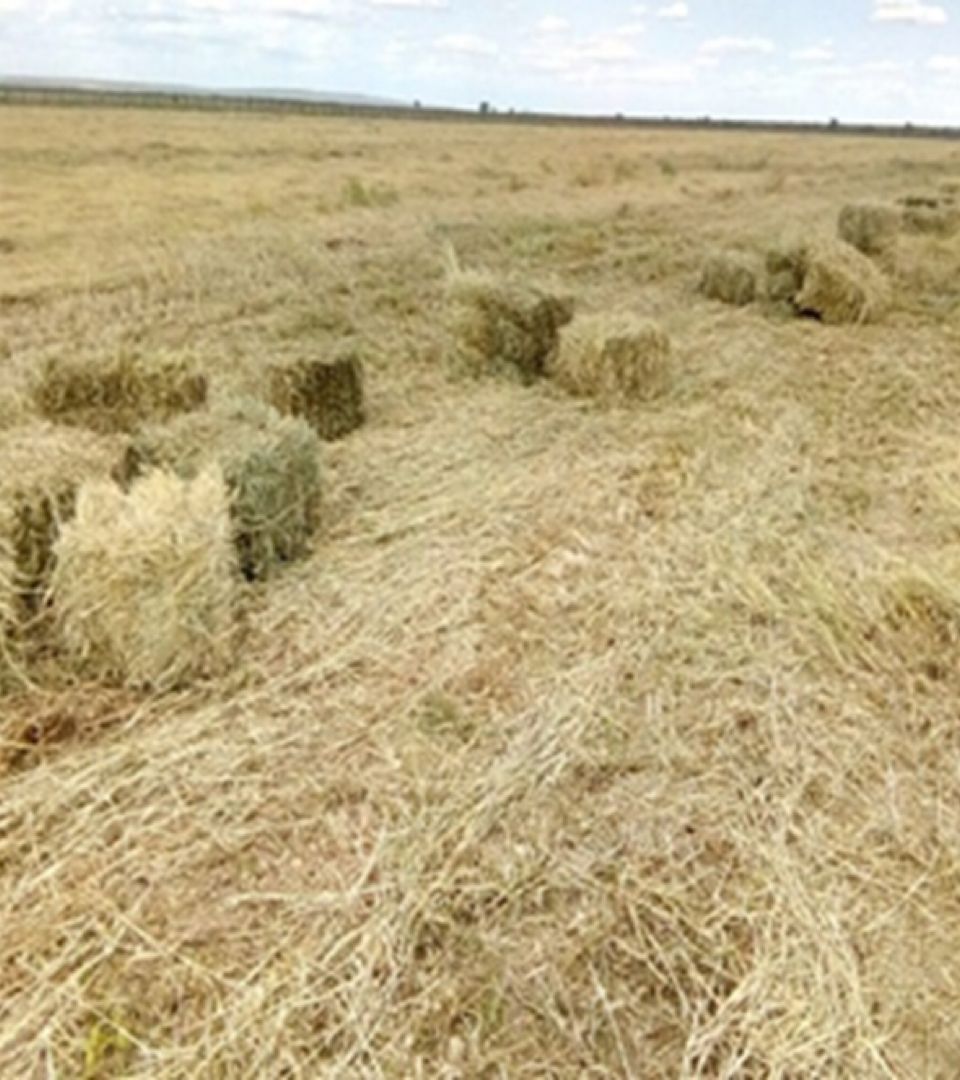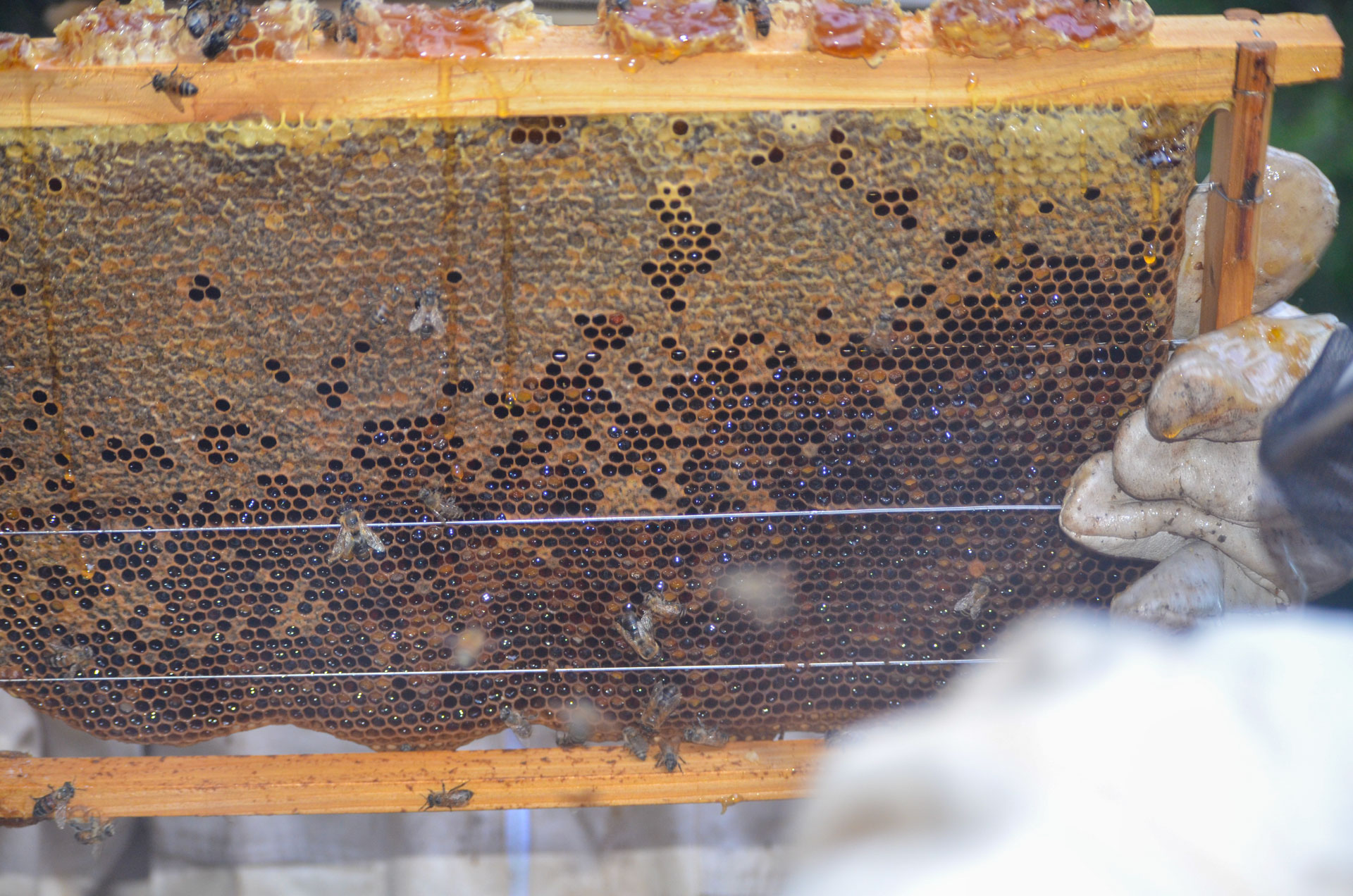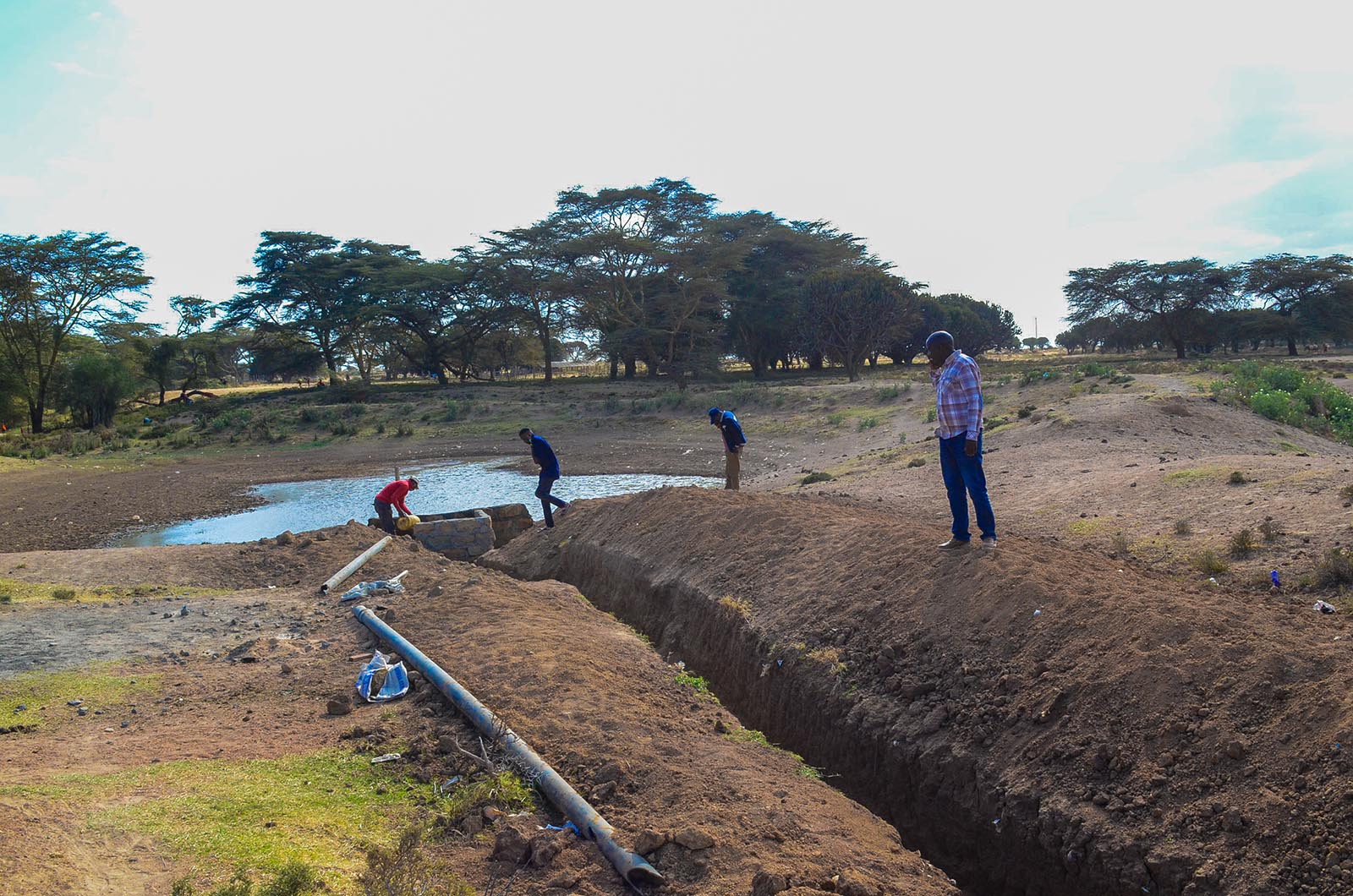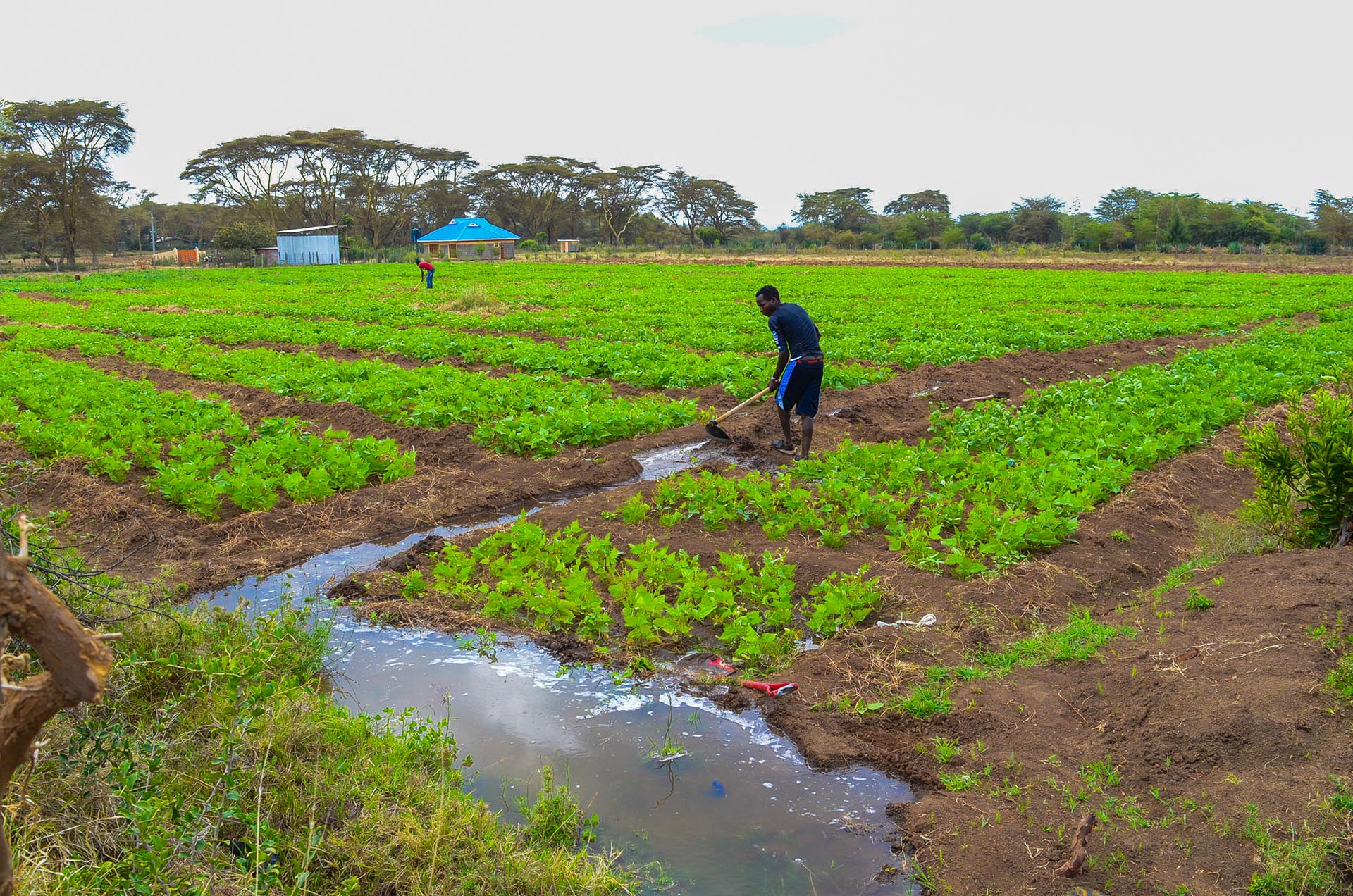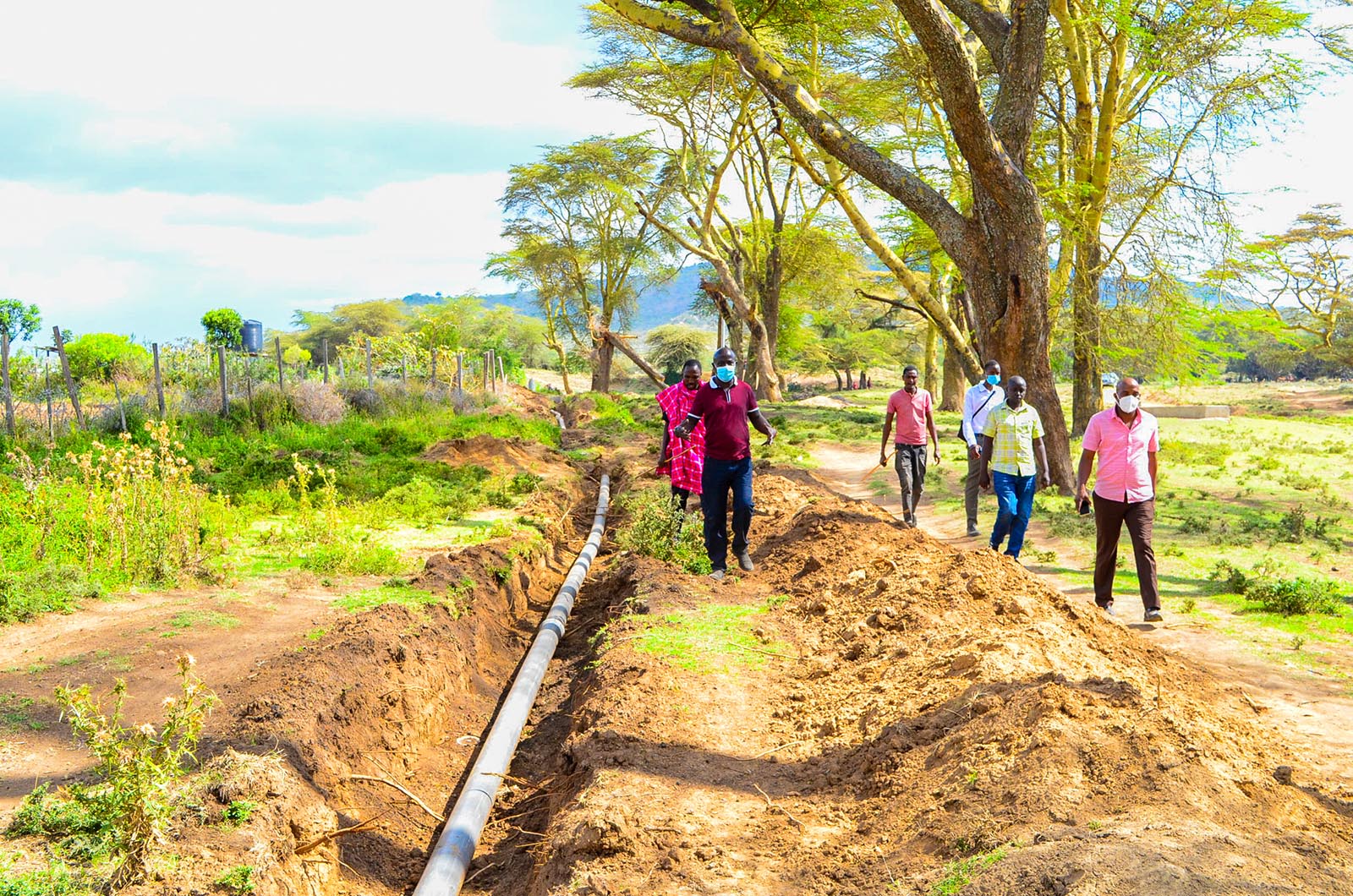Livelihoods Diversification, Value Addition and Access to markets for pastoral products: Numerous and enormous pressure is being exerted on pastoralists and pastoralism inter alia Climate change, land fragmentation, privatization and enclosures and competing land uses among others. The need for diversification into sustainable livelihoods options is increasingly critical. ILEPA has implemented a number of interventions based on learnings and consultation with the community. These include Beekeeping for honey production, hay banking for cushioning in times of drought and gravity-fed irrigation for enhanced food security and incomes and access to water.
On the hay-banking the latest drought (2022/2023) was one of the worst in half-century. Pastoralists travelled the furthest ever and used the train for the first-time. Livestock herds were decimated with many households closing their livestock sheds/ inkangítie. In response to previous and current drought, ILEPA introduced pasture growth and banking to cushion pastoralists against such as extreme moments. Land-owners are encouraged to set aside a few acres of their land for hay production and construct simple silos for harvesting and storing hay, including the pastures times of plentiful rainfall.


